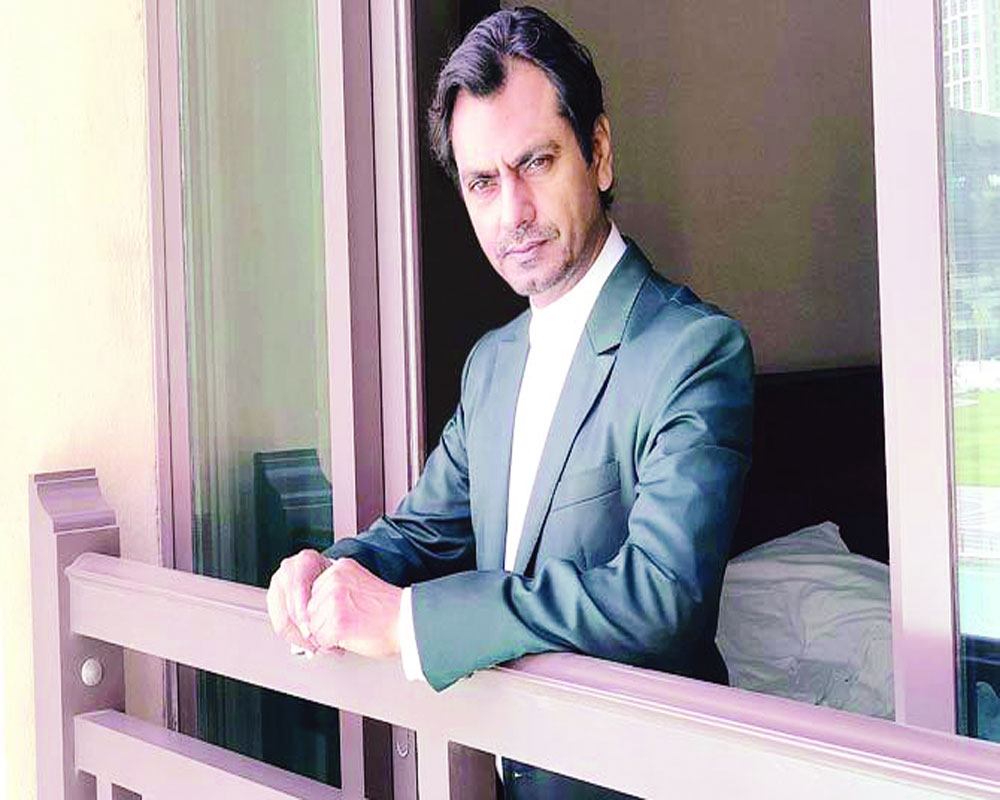Actor Nawazuddin Siddiqui tells Chahak Mittal that films aren’t propaganda that have to make an impact on society or always stand for a social cause
Told with a local train-like efficacy amid Mumbai’s crowded streets and busy lives, director Ritesh Batra’s The Lunchbox was a simple love story in ways unique to itself. Well, the filmmaker comes back with yet another romantic tale set in the city, shovelling people’s attention towards what could also be called the ultimate romance, though not epic perhaps. For him, it’s not two perfect or equal lovers who make a brilliant love story, it’s the love that makes the relationship perfect, no matter who the protagonists are.
Photograph, starring actor Nawazuddin Siddiqui and Dangal and Badhaai Ho fame Sanya Malhotra, features the bond between two people who come from completely different worlds. While one is a local photographer, Rafi, who captures the people who visit the Gateway of India in Mumbai, the other is an educated urban girl and a CA, Miloni.
For Nawaz, it was because of Ritesh that he chose the character and the film. “I have known him as a filmmaker. I have worked with him before and it’s always a pleasure to work with him,” says he.
Since the film is a first-of-its-kind to showcase a potential relationship between two people from such different backgrounds, he believes that it is just a “simple and unconventional” love story from the perspectives of two different people, who meet and come together. He says, “It’s not always necessary that a film needs to make an impact on society. It should indeed be worthy to be appreciated by the audience for its own sake. It is about two people craving for companionship.”
The film would indeed bring back the era when reel photos were safely kept and preserved in albums as they were created only once, as compared to ‘selfie’ and ‘posing for candids’ era.
Talking about how he prepared or learnt the way the street photographers talk to people at the Gateway or other such national monuments, Nawaz says that for a few days before they began shooting, Ritesh had called a few photographers who helped him to know about their individual styles. “I learnt their way of walking, dressing and talking, I observed how they convinced people to get clicked since today everyone has smartphones with good quality cameras. They don’t feel the need to pay the photographers for a picture. Hence, they need to have some convincing power to make their profession work. I observed how they clicked a picture and then got them printed through developing negatives,” he says.
However, no matter what character he plays, the Haraamkhor actor says that this time he wasn’t playing anyone else, rather himself. “Here, I have actually played myself. I haven’t done any characterisation. I relate and connect to my character a lot since it somehow takes me back to my initial struggling days in Mumbai. Rafi is just an ordinary, common man. He is not some larger-than-life character. Woh bhi unn hazaaron me se hi ek hai, kuch alag nahi (He is also one among thousands of others). I was also the same when I came here,” says he.
He goes on to tell us how “Ritesh never asked us to act. He just wanted us to be ourselves and look at the lens with our own eyes.”
The film, that was premiered at the 69th Berlin Film Festival and the Sundance Film Festival, has received appreciation from a wide audience. The actor says that it is because there haven’t been many films that showed a local guy and an urban girl romancing. “This one did and in a quite believable way. It was very much true,” says the actor.
He calls Ritesh’s filmography style as “different, real and simple.” He believes, “There is a simplicity in what he shows just like he even did in The Lunchbox. He doesn’t romanticise the idea of romance rather shows it in a very subtle and real way.”
Talking about a shift in Bollywood’s sensibility and understanding of modern relationships, he says that there have been a few directors like “Shekhar Sharma, Anurag Kashyap who had started this change a long time ago. But yes, there are mainstream directors who also moving towards realism now.”
However, explaining what ‘realism’ implies, he says, “It is not only about social issues or making biopics. A film is not propaganda that stands for or promotes a social cause. A film can pick up any subject. I don’t see it as a responsibility that a film should follow such rules and show certain content.”
As the actor has played a number of characters unconventional to that of a typical Bollywood hero, and done films like Manto, Thackeray, Gangs of Wasseypur, Manjhi - The Mountain Man and many other critically-acclaimed film, he says that he doesn’t see himself as an inspiration since he is not on a “particular mission that I have to inspire people. I am just an artist who is experimenting with himself and his craft. I just do what I feel is right and something that brings out the new in me.”
(The film releases on March 15.)


























